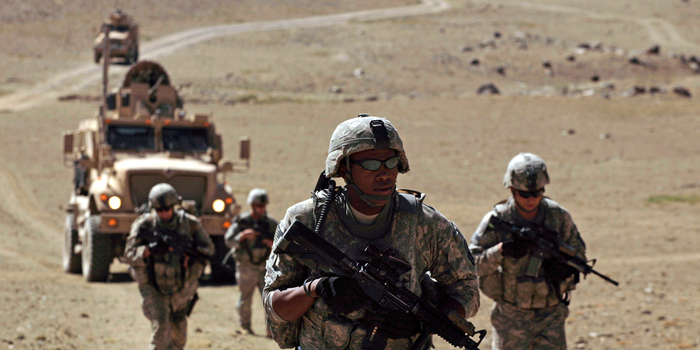Shaimaa Hefzy
The international community is increasing its fears of the repercussions of the US withdrawal from Afghanistan amid the Taliban’s escalation and a societal threat that may leave thousands of refugees.
While the international community seeks to establish the foundations for a comprehensive and lasting peace in agreement with the Taliban, which is still undecided about its relationship with al-Qaeda, experts believe that the process of achieving a just and lasting peace will not be an easy journey.
In the event of the prevailing climate in Afghanistan and the successive clashes between Afghan forces and Taliban elements, there are many risks that this process may deviate from its course or be disrupted, and the Afghans may lose another chance for peace.
On the other hand, the perception of uncertainty and apprehension about the possibility of a Taliban robbery and the return of provincial rule would lead many Afghans to leave the country, leading to a repeat of the refugee crisis that erupted in 2015.
Afghanistan needs to create an organized political process to transfer power so that the security forces are not left without leadership and direction, as well as motivating Afghan political figures around an orderly peace process.
The main danger to the peace process on the part of the Taliban is not only its operations against the Afghan or American forces, but the most dangerous is that it believes that it defeated NATO and the United States, and this pushes it to boldness and may make them choose to continue military action without agreeing to peace.
In the event that the Taliban chooses violence, this means a major confrontation over the course of the spring and summer months, and at the end of which the Taliban will have no good options but to return to the negotiating table.
The Taliban refused to participate in the Istanbul conference on a peaceful settlement in Afghanistan, which was scheduled to take place between April 24 and May 4.
The Taliban’s intransigence in the face of efforts to negotiate a comprehensive peace agreement in the region comes at a time when US forces are preparing to withdraw from the country after President Joe Biden’s decision to complete this by September 11.
The influence of al-Qaeda is still grave, even if the support forces it receives diminish, which explains the growing concern about the continuing relationship between the terrorist organization and the Taliban movement.
In October 2020, a senior UN official warned that al-Qaeda remained a global threat despite Taliban promises to prevent the organization from launching international attacks from Afghanistan.
The coordinator of the United Nations team to monitor ISIS, al-Qaeda and the Taliban, Edmund Fitton-Brown, said that al-Qaeda is still heavily involved with the Taliban, trains with them, and engages them in military action.








































admin in: How the Muslim Brotherhood betrayed Saudi Arabia?
Great article with insight ...
https://www.viagrapascherfr.com/achat-sildenafil-pfizer-tarif/ in: Cross-region cooperation between anti-terrorism agencies needed
Hello there, just became aware of your blog through Google, and found ...